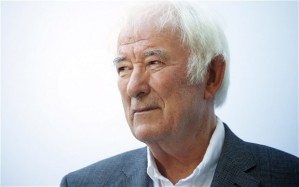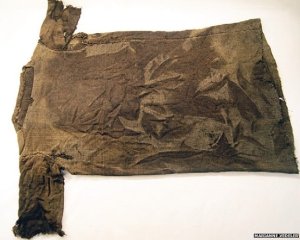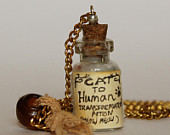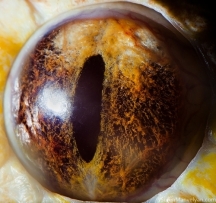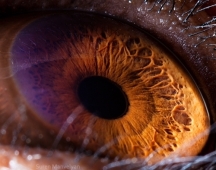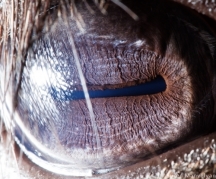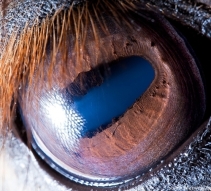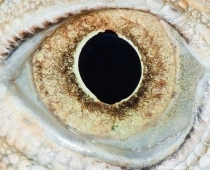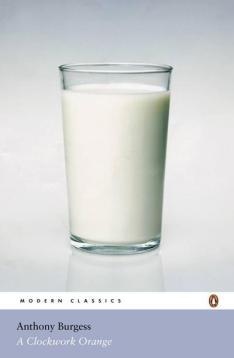I usually check the BBC News page several times a day in order to find out what is going on in the world (whatever criticisms can be aimed at the bias within the BBC’s choice of news to cover), but yesterday I unusually didn’t go on it at all. Having no access to any other form of news coverage all day, the first I heard about this was gone midnight via a friend’s Facebook. And I can honestly say that my first reaction was to break down and sob. As for many other people, Heaney is one of my favourite poets, and is one of the reasons that I got into writing poetry. I have only occasionally used his influence in my poems, but his presence has been there in the way that I think about poetry, the writing process, and the use of the past and experiences to inspire. For me, he was (and still will be) a massive part of my cultural being and a true inspiration, and as cheesy and as strange as it may seem, I feel that I have lost both a friend and a teacher. He will be sadly missed, and truelly deserves to be remembered.
Electric Puppet
Also at: facebook.com/electricpuppetblog
Monthly Archives: August 2013
Treasure from the Norwegian ice
The gradual melting of the world’s glaciers has proved interesting recently for archaeologists, with the Lendbreen glacier in Norway revealing a fantasticlly well preserved Iron Age tunic, and a number of Neolithic bows and arrows. The arrows were shorter than earlier Mesolithic shafts found elsewhere in Europe, and this is possibly due to the heavy weight of the points, made out of slate- an odd choice for such weapons. The tunic is one of only a number of such items that have been found from this period, and shows signs of wear, use and even repairs that have been made.
However, this melting of the ice may have proved fortuitous in this case (as it also did in the case of Otzi the Iceman discovered on the Austrian-Italian border), but it also highlights a growing concern that many more delicate items could thaw out of the ice and degrade or be destroyed before anyone has the opportunity to recover them, meaning that many artifacts could be lost forever. Oh, and there is also the small matter of the issues this raises concerning Global Warming…
Anyhoo- here is a link to two articles on the discovery from the wonderful ‘Antiquity’ journal, if anyone is interested:
http://antiquity.ac.uk/ant/087/ant0870728.htm
http://antiquity.ac.uk/ant/087/ant0870788.htm
(The articles are also linked to the images, so alternatively, click on the pictures).
Teeny Alchemy
A friend of mine from uni has set up an online shop on Etsy called Teeny Alchemy, where she is selling handcrafted pendants, jewellery and the like. The shop is in the early stages at the moment, as it has only been open a day, but there should soon be more on offer. She would love to have your support and for you to spread the word if you could, and hopefully keep checking to see what else she has on offer- and buy some things!
However, instead of me trying to distill her vision into my own words, here is her mission statement:
Greetings, bold adventurer!
Do you wish to procure quirky, fun jewellery and knick-knacks to spark your imagination? Why, look no further than Teeny Alchemy! Let your sense of humour and style free with all of our hand crafted items. They might not be really magic (except in your imagination,) but they are the perfect way to add a little enchantment into your style.***
I am an archaeologist working in secondary education in the UK. I love channelling my love for the old, the stylish, the surreal and the funny into my Etsy creations.
…and here is the link to the page (or click on the above images):
http://www.etsy.com/shop/TeenyAlchemy?ref=pr_shop_more
So- check her out, and get buying!
Today- 29th August
I haven’t posted for a few days, but as today is my BIRTHDAY, I thought that I’d make up for the lack and post a few a bit later as a little present from me to anyone that cares to read this blog.
Also, a big THANK YOU! to my 14th follower, who decided to follow Electric Puppet today! You can find her here:
http://museumpostcard.wordpress.com/
Please check out and follow her page.
For anyone interested, today is also the birthday of Richard Attenborough (90) and Lenny Henry (54), and would have been the birthday of John Locke (1632-1704), Ingrid Bergman (1915-1982), Thom Gunn (1929-2004) and Michael Jackson (1958-2009), amongst many others. Oh, and today is the Feast of the Beheading of John the Baptist… Nice.
Thoughts on ‘A Clockwork Orange’
I posted a number of days ago my thoughts upon reading the first few chapters of Anthony Burgess’s ‘A Clockwork Orange’, and have taken longer reading this than I originally intended and imagined. However, I literally have just finished it, and felt that I should get some ideas down while they are still fresh- even if it is 3:35 AM!
Originally, the violence bothered me in both the sheer brutality of it and the way in which it is told with cold excitement and pleasure. However, I can now see that the violence enacted by Alex and his friends is but a narrative device on which to hang the central theme of the book. The idiosyncratic language used allows much of the violence to be covered up (or at least veiled), and after initially finding this daunting and inapproachable (due to having spent too long trying to decipher ‘Ulysses’), I soon read past this. Indeed, the use of the slang draws the reader in and makes them feel as though they are a part of the story, as they can understand what the narrator is saying and the words he uses, when many of the characters cannot break this code.
I was surprised to find myself as shocked by the violence depicted in the “cinny” as by that carried out in the first part of the book, and irritated that I begun to feel for Alex during his corrective treatment due to the way in which the supposedly ‘good’ State was treating him and abusing him phycholigically. I say irritated, as I begun the book wanting to hate Alex, and convinced myself that I would be detached from his character. Also, after hearing of the rapes and attacks, I was shocked by the slow revelation that the characters carrying out these acts were so young, with gradual references to school, living with parents, and the use of milk-bars to suggest the adult pub, but with a more childish edge.
The central theme of the novel (novella?) is summed up initially by the charlie (prison chaplain) when he says:
“It may not be nice to be good, little 6655321. It may be horrible to be good. … Does God want goodness or the choice of goodness? Is a man who chooses the bad perhaps in some way better than a man who has the good imposed upon him?”
It can be seen that the enforced good is so rigorously and violently imposed that it ceases to be good, and becomes a form of evil and ‘bad’ in itself; whereas the bad commited under one’s own free will becomes more ‘good’ in comparison due to the retention of human free will. Interestingly, the US market received the book upon its original publication in 1962 (and subsequent publications until 1986) without the final chapter, leaving Alex to return to his own ways. It is this ominous and defeatest ending that Kubrick used to close his film on, making the story a cyclical one that becomes not so much about a singular character named Alex, but about an everyman character named Alex, whose tale is to be echoed on and on and on. However, the original book in its UK edition contains a further chapter which I feel actually reveals the true message of the book. Burgess gave ‘A Clockwork Orange’ 21 chapters to relate to the age at which people are seen to become full adults, and in this final, 21st chapter, the 18-year-old Alex realises that even though he has regained the free will to commit acts of violence, it is actually the love of a wife and the role of a father that he wishes to choose for himself. Yes, we can see that the narrator is finally choosing to be good rather than having it imposed upon him, but we also become aware that the entire book has been an (albeit very exaggerated) alegory for a person’s teenage years and their path to maturity and adulthood: He rebels against his parents and society; he is punished for this and adults attempt to mould him into a better person (or the person that society wishes them to be); this works for a time, but then the child has to work out for themselves that this adult life is what they want, not what they are told they want; finally, the rebellion is put behind them and they become an adult. Personally, for me this is the bigger message of the book, and one that turns this book from an exploration of a philosphical conundrum to a coming-of-age story with a more powerful and applicable message.
All-in-all- not what I expected, but a lot better and a book I would thoughroughy recommend.
Thought’s on ‘Animal Farm’
I said a few days ago that I’d recently read George Orwell’s ‘Animal Farm’, and that I would give a few of my thoughts upon this. Well- here goes!
‘Animal Farm’ is one of those books that I’ve meant to read for a while now, but haven’t until the past week or so. I feel slightly bad saying this, as to me it is one of those books that I should have read (along with Orwell’s ‘Nineteen Eighty-Four’, which is also on my SOON TO READ list, and a host of Dickens, which are not). I knew that the message and theme of the book was meant to be upon the nature of socialism and the irony that this system has as a form of government, but I was pleasantly surprised by just how clever the book is. Despite being intended as a parody of Stalin-era Russia, there are several aspects that also bring to mind the Nazi state, such as the Night of the Long Knives-like killing of those who disagreed with or who spoke out against the state, and the Molotov/Goebbels-esque character of Squealer, flanked by canine Gestapo. In themselves, the use of dogs for the bodyguard, police roles suggests further that such secret police and other officials are less influenced by political ideology and agendas than loyal service to whoever is in control, as before the rule of Napoleon, the dogs at Manor Farm would have been at the bidding of the previous leader, Mr Jones. Indeed, the entire way in which Orwell shows propaganda and political manipulation at work comes across brilliantly, with the other animals only being dimly aware that the truth of the past may not be quite as it is being portrayed to them by their leader. Similarly, the subtle rewording of the Commandments painted on the wall are not questioned on the basis that they are on the wall, and so must always have been so. This blind belief that what the state tells is citizens is alway true and that the state knows best is a message that can just as easily be applied to present regimes and indeed our own country as it can Soviet Russia.
However, the best aspect of the book for me is the way that when the control of Napoleon begins to manifest itself, the reader is shocked by each act and led to think that they are terrible, and highly wrong morally. I for one couldn’t imagine such things actually happening, and the fact that these events are occurring to animals makes the links less obvious- but then suddenly it hits that everything that seems so shocking did actually occur in Russia, and the tightening of state control did take the same brutal and immoral routes.
All-in-all, I found ‘Animal Farm’ to be a highly enjoyable, gripping and thought-provoking novella, and for anyone who hasn’t read it, I would highly recommend it. I have only given here a few thoughts of mine upon the book, and urge you to find your own illusions within it, but hope that this may help.
Eye eye!
As the caption suggests, that eye belongs to a llama. I had never quite imagined that llama eyes were so beautiful, strange, or geological. It almost looks like a dazzling Mediterranean or Caribbean lake surrounded by large rocky formations instead of an eye. I’ve posted several more here which speak for themselves, really, and more eyes can be found at
http://www.surenmanvelyan.com/eyes/animal-eyes/.
For me, nothing comes close to the human eye, and it is easy to see why the eye has been put forward by many as proof that life must have had a Creator, with nothing so amazing ever having been able to be produced by evolving. Personally, I believe that Creation and theories of evolution can quite easily be reconciled, seeing evolution to be a process put in motion by God, but however you see it, the eye is a truly fascinating and spectacular piece of biology.
Cultural Cards
Archeologist saves cultural treasures with cards | Art & Architecture | DW.DE | 27.08.2012.
Here’s an interesting article I’ve just found from almost a year ago that follows on nicely from my recent posts about the mess in Egypt and the threat to archaeology. It seems that it is not just local people who seem to destroy sites and heritage in times of upheaval and war, and so to prevent the US military from causing damage unwittingly when in the Middle East, these methods are being tried out. It seems as though they seem to be working too, which is nice and promising. Anyhoo- check out the link above if you are interested.

Egypt and the threat that won’t go away
https://www.facebook.com/StopTheHeritageDrain
I am currently in the process of looking up some information for another blog post when I came across the above page on Facebook. Following on from the vaguely optimistic post I published regarding the mess that Egypt is in at present, there is a Facebook page dedicated to disseminating images of stolen antiquities and artifacts from museums within the country in the hope that these can be tracked down and returned. All of these have been stolen since the start of the civil unrest, on a scale that seems ridiculous. And there is nothing that we can really do to stop it. It saddens me that transient political disagreements in the present should have such a fierce effect upon the past; we should be able to change the actions of the present. Once the past is gone, though, this is irreversible.

A further brief note on the threat of rejection
Another thing that is making me hesitant to submit any poetry once the book I’m currently working on is complete is the fact that I really want to be published by Faber. This comes down in part to the same thing that drove Queen to strive from the go to end up on EMI. They wanted EMI because The Beatles were on their label, and I want Faber because my favourite poets were and are published by them. I just doubt it will happen.
If anyone from Faber happens to be reading this (which I also doubt) then- PLEASE PUBLISH ME! (Just as soon as I’ve finished the book). Well; we can all dream.
Writing and the threat of rejection
I’ve said on the ‘About’ and ‘Poetry and Literature’ pages along the menu near the top of the page that I am currently writing poetry with the distant hope of getting published. The only thing that is stopping me is the fear of almost certain rejection when I come to submit my work to various publishers. Annoyingly, many companies that take on poets will only accept a handful of individual poems as a submission, rather than entire manuscripts, and so when I have finished this book I need to somehow single out the best few poems to send off. The only problem is that the book does not really contain many stand-alone poems, with most working with others to form a part of a much larger whole with a central narrative and interconnected themes- a bit like Ted Hughes’ ‘Crow’. Or, perhaps more accurately, Ted Hughes’ ‘Birthday Letters’ (Hell, I love that book).
One thing that has made me feel better about future rejections is that I’ve just read C.S.Lewis got rejected around 800 times (!), as well as Sylvia Plath, Rudyard Kipling, William Golding, Jack Kerouac, George Orwell, H.G.Wells, Anne Frank and Louisa May Alcott also facing rejection. Then of course there is J.K.Rowling, whom we all know the story of. Perhaps I shouldn’t despair before I’ve even begun…
Egypt and the threat to Archaeology
As an Archaeologist, the mindless destruction of the 12th century Umayyad Mosque in Aleppo, Syria during the civil unrest in April 2013 made me feel sick and realise just quite how all-encompassing and total the violence was becoming. UNESCO World Heritage Sites weren’t safe from the threat of modern conflict. We saw back in 2003 that the American entry into Iraq led to the looting of the National Museum of Iraq in Baghdad, and subsequent desert sites became pockmarked with hundreds of pits dug by desperate civilians hoping to find treasures that could be sold. Well just today the death toll in the Egyptian violence has come to over 600, and with all of this unrest, i have wondered how Egyptian archaeological sites and antiquities will have fared; Egypt being renowned for the trade in illegal antiquities. It must be going on at sites that are left unguarded and unprotected in the desert, especially when armed forces and police will be being moved to areas of violence and so leave historic sites unprotected. Dr Zahi Hawass, the head of antiquities in Egypt, left his post in 2011, citing his inability to protect the material and sites during the troubles as one of the reasons (being a supporter of Mubarak may have been another), and so the situation at present could be quite dire- no-one can really know.
However, today I saw an article offering some hope on ahramonline (http://english.ahram.org.eg/NewsContent/9/40/79035/Heritage/Ancient-Egypt/Egypts-archaeological-sites-and-museums-closed-ind.aspx), which I will quote in part:
Minister of State for Antiquities Mohamed Ibrahim established an emergency operation room to follow up on security measures taken at archaeological sites and museums across the country, in order to protect them from looting or encroachment.
During clashes, pro-Morsi protesters destroyed guard kiosks at the entrance to the National Museum of Alexandria, and at the Malawi National Museum in the Upper Egypt city of El-Minya.
Ibrahim told Ahram Online that both museums are safe, however. “Thank God, nothing happened to the museums themselves,” he said.
We can but hope that he is right, and hope that this awful mess in every sense- political, personal, social, as well as archaeological- is sorted soon before we end up with a replica of Aleppo and a gaping hole in the shared heritage and history of the world. It is something that all archaeologists should be concerned about, and which the international community should speak out about before it is too late, more culture is destroyed needlessly, and more lives are thrown away.
‘Vlogumentary’
Recently my partner and I have begun to watch vlogs uploaded onto YouTube by an American family known as the Shaytards, who are great fun to watch and who seem like very, very nice people who we are happy to support in all they do through our viewing of their videos. They have been vlogging everyday for the past 4 years, with this year being the last year that they will vlog daily. This year, Shay Carl, who is the primary vlogger, has been involved in the making of a documentary about vlogging, vloggers, and the impact that this relatively recent phenomenon has had on many people’s lives. This is the trailer to the film, titled ‘Vlogumentary’, which I am posting in the hope that it can gain more exposure for Shay and his team. It looks like it should be well worth a watch!
First thoughts on ‘A Clockwork Orange’
Before starting this blog, I managed to finally finish reading ‘Ulysses’, which I begun in the summer of 2012 before going to uni. Subsequently, I managed to read Truman Capote’s ‘Summer Crossing’, George Orwell’s ‘Animal Farm’ and Kurt Vonnegut’s ‘Slaughterhouse 5’ in a week, and I will post my thoughts on some of these in due course. However, I have now begun to read ‘A Clockwork Orange’ in the edition shown above, and thought that I’d put down a few thoughts upon finishing the first few chapters.
I knew from the reputation of the film version by Stanley Kubrick that the book might be shocking and a tad violent, but I was slightly surprised by just how violent and coldly so it seems to be. Despite the acts being disguised through the interesting Joycean use of language, the rape scene in chapter 2 comes across as shocking to say the least, partly in the level of enjoyment seen to have been gained from it by Alex and the electrified retelling of it as though it were a playful and exciting act. I will read the rest of the novel with some trepidation, but also intregue, as I want to see how far Burgess takes the shock factor, and how much further he stretches language- a technique I did not expect him to employ, but much prefer in this case than I did in ‘Ulysses’.
I will post my further thoughts as I progress with the book.
A brief Arch & Anth disclaimer
As the ‘About’ page says, I have completed a degree in Archaeology and Anthropology, but I do not profess to be an expert on these- far from it. I know many experts, but any things I say here are my own opinion or my own interpretation of research out there. Do not take me as an authority, or quote me in academic texts (well, not until I have published a few journal articles and books, anyway…)
A word on literature posts
I should mention that any opinions expressed in my literature post (or any other posts, for that matter) are my own, and cannot be copied etc etc etc. Also, I am not in the habit of writing book reviews per se, but I will update with what I am reading, and what I think of it ether as I am reading or when I have finished. Don’t punish me if you disagree, and don’t take my opinions as critical readings or interpretations, because they aren’t!

